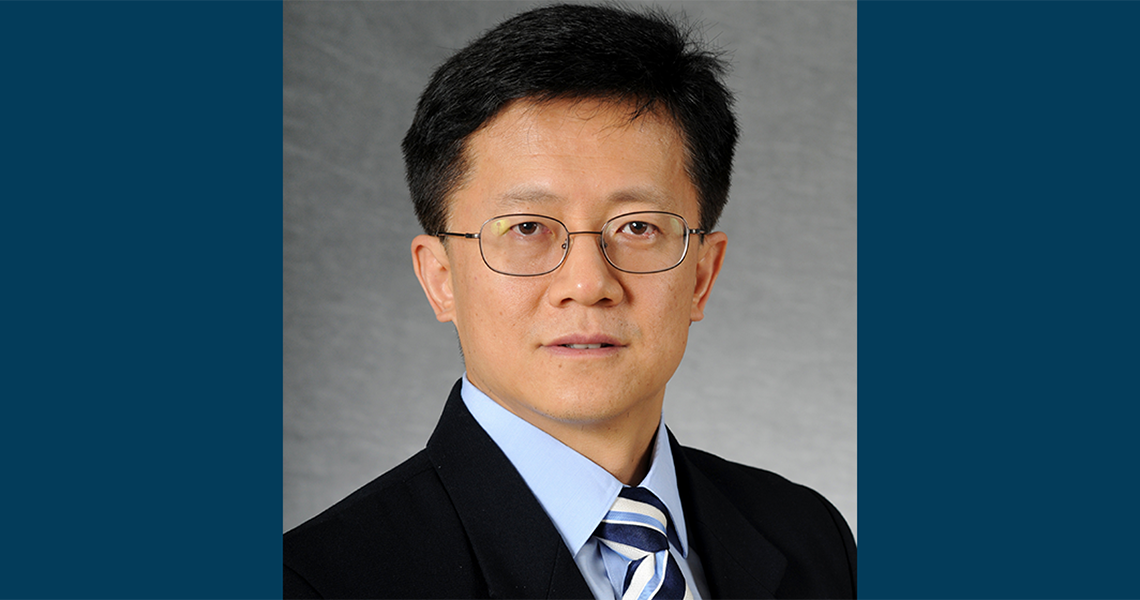WASHINGTON (Aug. 16, 2019) - The extracellular regulated kinase (ERK) protein is an important mechanism behind platinum-resistance in platinum-resistant ovarian cancer, according to a study from a research team at the George Washington University (GW) Cancer Center. The study, which is the first to provide clinical evidence confirming a link between ERK and hypoxia-inducible factor (HIF-1α), is published in Clinical Cancer Research.
Platinum-based chemotherapy drugs, are among the strongest and most widely used against cancer. Up to 80% of ovarian cancer patients develop platinum-resistance over the course of their treatment. Studies have found that HIF-1α - a subunit of HIF-1, a heterodimeric transcription factor that regulates multiple cellular pathways - is an important mechanism governing platinum resistance. However, the mechanism regulating HIF-1α stability in platinum-resistant ovarian cancer was largely unknown.
"Platinum-based chemotherapy is such a powerful treatment for cancer patients, however so many develop a resistance," said Wenge Zhu, PhD, associate professor of biochemistry and molecular medicine at the GW School of Medicine and Health Sciences and senior author on the study. "We wanted to figure out how that resistance happens for the cancer cells."
The research team evaluated a combination of inhibitors of HIF-1α, ERK, and TGF-β1 with platinum drugs by in vitro and in vivo experiments. They found prolyl hydroxylase domain-containing protein 2 (PHD2) to be an underlying layer of ERK. Zhu and his team observed that from clinical samples the activation of the ERK/PHD2/HIF-1α axis in platinum-resistant ovarian cancer patients, correlated highly with poor prognoses for patients.
"We found that HIF-1α stabilization is regulated by the TGF-β1/ERK/PHD2 axis in platinum-resistant ovarian cancer cell," Zhu said. "Now we can consider inhibiting any of those components as a potential strategy for treating platinum-resistant patients."
This study also provides insight for further investigation into whether this novel mechanism regulates the development of tumors and future chemotherapy response.
The work on this study was conducted in collaboration between the GW Cancer Center, Zhejiang University, the University of Hong Kong, and the National Institutes of Health. The co-first authors on the study are Zhuqing Li, PhD, and Yi Zhang, PhD, members of Zhu's lab at GW, and Wei Zhou, MD, PhD, from Zhejiang University.
The study, titled "ERK Regulates HIF-1α-Mediated Platinum Resistance by Directly Targeting PHD2 in Ovarian Cancer," is published in Clinical Cancer Research at clincancerres.aacrjournals.org/cgi/content/abstract/1078-0432.CCR-18-4145.
Media: For more information or to set up an interview, please contact Ashley Rizzardo at amrizz713 [at] gwu [dot] edu (amrizz713[at]gwu[dot]edu) or 202-994-8679.
###
About the GW Cancer Center
The George Washington University (GW) Cancer Center is a collaboration of the George Washington University, the GW Hospital and the GW Medical Faculty Associates to expand GW's efforts in the fight against cancer. The GW Cancer Center also incorporates all existing cancer-related activities at GW, with a vision to create a cancer-free world through groundbreaking research, innovative education and equitable care for all. Learn more about the GW Cancer Center at gwcancercenter.org.




